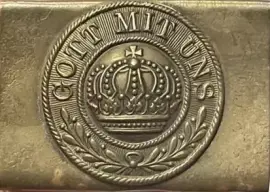God and Country

As a child, saying the Pledge of Allegiance was easy; it was a statement that showed pride in being a citizen. But that changed in 1954. A religious organization, the Knights of Columbus, proposed to then President Eisenhower to add the words “Under God” to the pledge. We did not need that. Any writer will tell you that adding words to a sentence will usually undermine and compromise the sentence, which is what happened. What was once a statement of patriotism is now a religious or political statement used by conservative politicians to push for issues that serve their agenda. We do not need this. In fact, we do not need the pledge itself. I say that because the pledge was developed by an individual who used it to teach patriotism to children in the 1880s. But now, it is used to indirectly inflict children (and impressionable adults) with the belief that our country is special and that our country is blessed by a supreme being.
Just imagine. If we have a supreme being on our side, we can really kick butt to everyone else, right? But — wait. We aren’t the only country that has held that belief that we are special on a heavenly level. Remember Germany in WWII? Those young German soldiers’ belt buckles had the words “GOTT MIT UNS” emblazed therein: God with us. Were they wrong? I think not. They had everything in common with US soldiers except language. Our failure in winning was in drawing the conclusion that it proved our belief; it did not. All our winning proved was that superior forces, more soldiers, more planes, and more bombs would help defeat a German dictator who underestimated the opposition. And what happened to the brilliant German scientists after the war? We hired them.
So, let’s bury that attitude of having a heavenly blessing of superiority. Would any of us ever tell a person from another country that our country was blessed by God and not theirs? I think not. The pledge and references to God are in place to reinforce nationalism in all of us. After all, that was the intent of the pledge’s author. Unfortunately, President Eisenhower wasn’t finished with his meddling when he added the word “God” to the pledge. That’s right, he also established our official motto, “In God We Trust,” replacing the unofficial one that appears on the Great Seal, “E Pluribus Unum” (Out of many, one). The source of this religious fervor? Possibly, he had been baptized into the Presbyterian faith one year prior. Is this motto serving us? Is it really?
This is where the crux lies. We have created the image that God directs us, yet what proof do we have? World War II’s victory was a significant moment, but that was then. Where are we now? We have more illnesses, more suicides, more gun crises, a continuing drop of citizens claiming religious beliefs, and a growing list of failures in attempts to provide assistance outside our country. Is God directing us? In God do we trust? Am I anti-religious? No, but I am against perpetuating the belief that a supreme being is interested in our government. The facts say otherwise.
In all of this, I admit that I’ve never supported the idea that God and country belong together. Jesus said it satisfactorily: “Render therefore unto Caesar the things which are Caesar’s; and unto God the things that are God’s.” (Matthew 22:21 KJV) But my thoughts on the topic are not rigid. We enjoy the belief that there is an inner core that elevates us to a higher level, a level that places meaning in this short life. To this end, we attach ourselves to what we see as bigger than ourselves. We find inner strength in this, and believing at a higher level is not to be denied. On this, my admiration goes to the British.
Yes, the British. The anthem, “God Save the King,” is not sung as a religious hymn but as a statement on the significance of the role of the king. This is in no way a paraphrase of the term often used here, “God bless America.” The British tone reflects that there are beliefs higher than ourselves, bigger than the individual experience of life, yet not a religious expression. Consider also the song “Jerusalem,” which gently shares the vision that Jesus may have once walked in the land of England. And who are we to deny it? We know that Christianity was in England in the second century, a time when parts of the Gospels were still being written. How did this happen? But I digress. Those Jerusalem words I wish were somewhere in our own history.
And did those feet in ancient time
Walk upon England’s mountains green?
And was the holy Lamb of God
On England’s pleasant pastures seen?
And did the Countenance Divine
Shine forth upon our clouded hills?
And was Jerusalem builded here
Among these dark Satanic mills?
Bring me my bow of burning gold:
Bring me my arrows of desire:
Bring me my spear: O clouds unfold!
Bring me my chariot of fire.
I will not cease from mental fight,
Nor shall my sword sleep in my hand
Till we have built Jerusalem
In England’s green and pleasant land.
When that day comes, when we have built the New Jerusalem, I will be there.